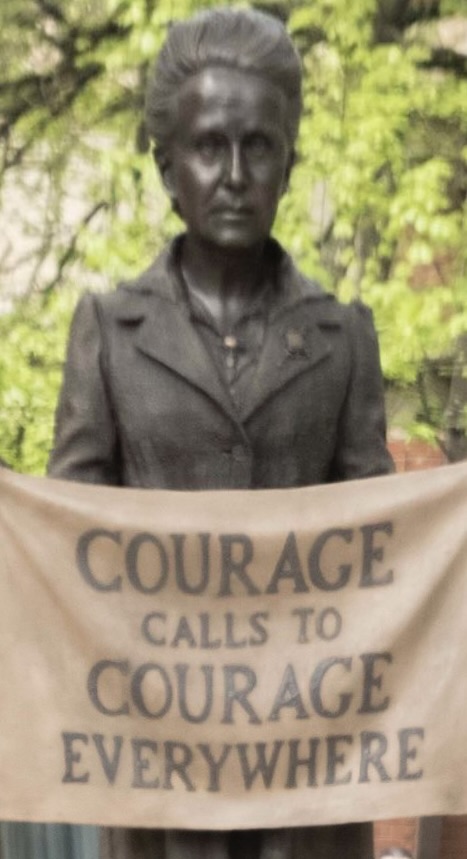Overview of the Protest
A recent trans rights demonstration in London has drawn widespread criticism and sparked a police investigation after protestors displayed placards calling for violence against individuals identified as “TERFs” (Trans-Exclusionary Radical Feminists). Eyewitness reports and viral images shared across social media revealed alarming slogans such as “TERFs to be hanged” and “stab TERFs in the head.”
The march, intended to advocate for trans liberation and rights, has instead been overshadowed by these extreme messages, prompting questions about the boundaries of protest, freedom of speech, and public safety.
Shocking Slogans and Messages
The most disturbing aspect of the protest was the appearance of graphic and violent signs that promoted acts of aggression. While peaceful protests are a cornerstone of democratic societies, the language seen on these placards crossed a line into threatening and inciteful rhetoric.
This follows similar controversies from past demonstrations, such as the one in Glasgow where activists carried a sign reading “decapitate TERFs,” complete with a guillotine illustration—a message that received swift backlash from all political parties and figures like J.K. Rowling. (Source)
What Does TERF Mean?
TERF stands for “Trans-Exclusionary Radical Feminist.” It’s a term used to describe individuals—typically feminists—who are perceived as opposing the inclusion of transgender women in women’s spaces and rights movements. Originally a niche label, “TERF” has become a widely used and highly charged term in gender identity debates.
The Growing Divide in the Gender Rights Debate
The conflict between gender-critical feminists and trans rights activists has intensified, with both sides accusing the other of intolerance and extremism. As this ideological divide deepens, incidents like the violent signs in London only serve to further polarize the discussion, overshadowing meaningful dialogue and potential common ground.
Public and Political Reactions
Condemnation Across the Spectrum
Across social and political spectrums, the reaction to the violent signs has been one of condemnation. Both supporters of trans rights and gender-critical advocates have expressed concern that this kind of rhetoric only damages the credibility of the trans rights movement and risks escalating tensions further.
Social media users flooded platforms like Twitter and Reddit with posts decrying the imagery and messaging. Many emphasized that peaceful advocacy—not threats—should define any rights-based movement.
J.K. Rowling and Politicians Speak Out
Author J.K. Rowling, a vocal critic of what she calls “trans activism extremism,” once again voiced her outrage over the rhetoric used at the protest. Alongside her, multiple Members of Parliament have called for accountability and emphasized the need to de-escalate inflammatory language in protests.
The response mirrors the controversy from Scotland, where the “decapitate TERFs” sign at a Glasgow rally triggered national outrage. (Sky News)
Law Enforcement Response and Investigations
Metropolitan Police Action
The Metropolitan Police have confirmed they are investigating the signs displayed at the march, reviewing footage and gathering testimonies to determine whether hate speech laws were breached. In a statement, they noted the seriousness of the incident, saying that incitement to violence is not protected under the right to protest.
Authorities have encouraged the public to come forward with information or media from the protest to aid the investigation.
Legal Consequences for Hate Speech
Under UK law, speech that incites violence or hatred can result in criminal charges. If identified, individuals responsible for carrying or distributing the offensive placards could face prosecution. This incident has renewed calls for clearer guidelines around protest signage and more active monitoring of public demonstrations.
Impact on the Trans Rights Movement
Does Violent Messaging Undermine Activism?
While the vast majority of trans rights activists promote peaceful and respectful advocacy, high-profile incidents like these risk tarring the broader movement with the brush of extremism. Violent slogans detract from the message of equality and human dignity, and many within the movement are now calling for internal accountability.
Calls for Peaceful Protest and Civil Dialogue
Numerous advocacy groups have reiterated that the focus must remain on achieving rights through lawful and non-violent means. Public trust and support hinge on civil engagement, not intimidation. As such, there are increasing efforts within the activist community to promote guidelines for future demonstrations that explicitly prohibit hate speech and threats.
Conclusion
The display of violent placards at a London trans rights march has ignited national concern, prompted a police investigation, and sparked intense debate about the line between activism and incitement. As the UK continues to grapple with complex issues around gender identity and free speech, it’s more important than ever to encourage dialogue that is respectful, informed, and safe for all parties involved.
FAQs
Q1: What is a TERF?
A TERF is a term for “Trans-Exclusionary Radical Feminist,” typically used to describe individuals who do not support the inclusion of transgender women in women’s rights spaces.
Q2: What signs were displayed at the London protest?
Placards at the protest included messages such as “TERFs to be hanged” and “stab TERFs in the head,” which have drawn widespread condemnation.
Q3: Is the Metropolitan Police investigating the incident?
Yes, the Met Police have confirmed an active investigation into the protest signs and are reviewing potential breaches of UK hate speech laws.
Q4: What has been the response from public figures?
Prominent voices, including author J.K. Rowling and several politicians, have condemned the violent rhetoric and called for accountability.
Q5: How does this affect the trans rights movement?
While the majority of activists support peaceful advocacy, such incidents risk damaging public perception and highlight the need for stronger internal regulation of protest conduct.



